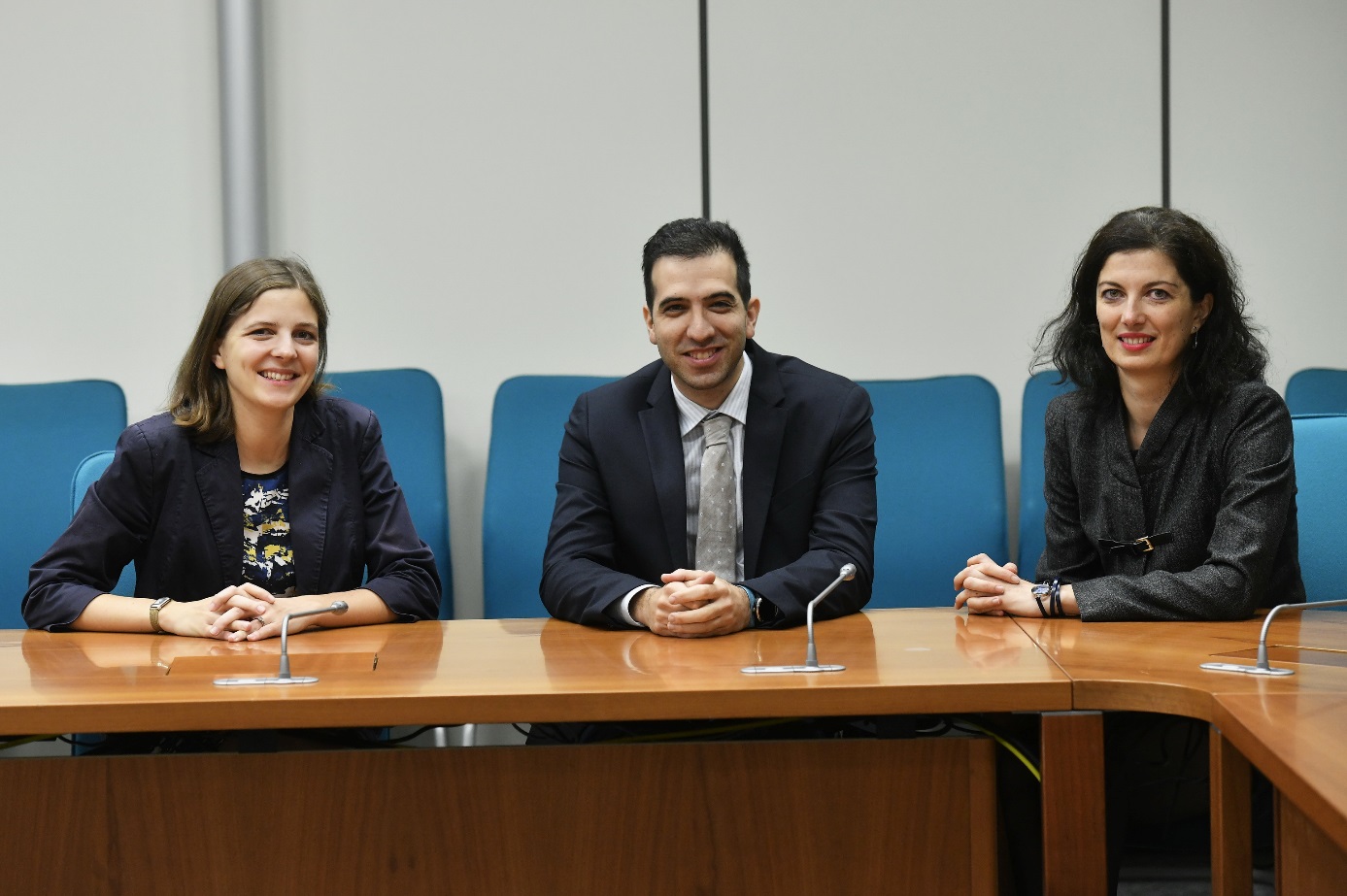Séminaire Fourgeaud - "Effet de richesse et transmission de la politique monétaire dans la zone euro"
Le séminaire Fourgeaud du 9 octobre 2019 a eu pour thème Effet de richesse et transmission de la politique monétaire dans la zone euro.
Tout d’abord, Frédérique Savignac (Banque de France) a présenté les résultats d’une étude réalisée avec Bertrand Garbinti (Banque de France, CREST), Pierre Lamarche (CREST-INSEE) et Charlélie Lecanu (ENSAE, Banque de France) intitulée "Wealth effect on consumption during the sovereign debt crisis: Households heterogeneity in the Euro area".
Ensuite, Miguel Ampudia (BCE) a exposé les principaux enseignements d’une étude réalisée avec Russell Cooper (European University Institute), Julia Le Blanc (Deutsche Bundesbank) et Guozhong Zhu (University of Alberta) intitulée "MPC heterogeneity in europe: sources and policy implications".
La discussion a été introduite par Albane Sauveplane (direction générale du Trésor).
1er exposé : présentation orale de Frédérique Savignac
Wealth effect on consumption during the sovereign debt crisis: Households heterogeneity in the Euro area : papier de Bertrand Garbinti, Pierre Lamarche, Charlélie Lecanu et Frédérique Savignac. N.B. : Ce papier sera mis en ligne ultérieurement.
2nd exposé : présentation orale de Miguel Ampudia
MPC heterogeneity in europe: sources and policy implications : papier de Miguel Ampudia, Russell Cooper, Julia Le Blanc et Guozhong Zhu.
Discussion d’Albane Sauveplane.

Sur la photo : Albane Sauveplane, Miguel Ampudia et Frédérique Savignac.
Voici un bref résumé des études présentées :
« Wealth effect on consumption during the sovereign debt crisis: Households heterogeneity in the Euro area », par Bertrand Garbinti, Pierre Lamarche, Charlélie Lecanu et Frédérique Savignac
This paper studies the heterogeneity of the marginal propensity to consume out of wealth (MPC) both across and within countries. We estimate the MPC based on two waves of a cross-country harmonized household level dataset which combines several households’ surveys on wealth, income and consumption. We use panel regressions and an instrumental variable approach to deal with the wealth endogeneity issue related to saving behaviours. We document five results. First, our panel-based MPC estimates are very similar to those obtained on aggregate data and show substantial heterogeneity across countries. It levels at 4.6 cents in Italy, 2.3 cents in Belgium, 1.6 cent in Spain, and less than one cent in Germany and in Cyprus. The wealth effect is coming both from housing and financial assets, while the main asset channel varies between countries. Second, whatever the country, the MPC is higher for low-wealth households, and for all non-durable consumption expenditure. Third, we find some asymmetries across countries regarding the reaction to losses versus gains. Fourth, higher MPC is obtained in all countries for the two main consumption expenditure categories. Fifth, we find evidences that housing prices shock decreases consumption inequality while financial wealth shocks have a limited effect on consumption inequality.
« MPC Heterogeneity in Europe: Sources and Policy Implications », par Miguel Ampudia, Russell Cooper, Julia Le Blanc et Guozhong Zhu
This paper studies household financial choices in four EU countries. The estimation of key parameters uses a simulation method of moments approach to match moments on asset market participation rates, portfolio shares and wealth to income ratios by education group and country. The policy functions based upon the estimation are used to characterize the distributions of the marginal propensity to consume across households for each of the four countries. The distributions are directly related to the presence of hand-to-mouth households. With the estimated distributions, monetary policy, operating through its effects on household income and asset market returns, will have a differential impact on individuals within and across countries.
-0-0-0-
Ce séminaire généraliste de la direction générale du Trésor est un lieu d'échanges de tous ceux qui participent au progrès de l'économie quantitative : membres de l'administration économique, universitaires, économistes de banques ou d'entreprises, représentants d’institutions économiques et financières internationales, etc. À tonalité scientifique, ce séminaire cherche à favoriser la réflexion sur les grandes questions économiques, notamment de politique économique, ainsi qu'à faire progresser les méthodes permettant d’analyser ces questions. Les thèmes abordés couvrent l'ensemble des domaines d'intervention de la direction générale du Trésor et font l'objet d'exposés présentés tant par ses membres que par des spécialistes extérieurs.
Crédit photo : © Patrick Bagein, Secrétariat général des ministères économiques et financiers, droits réservés.